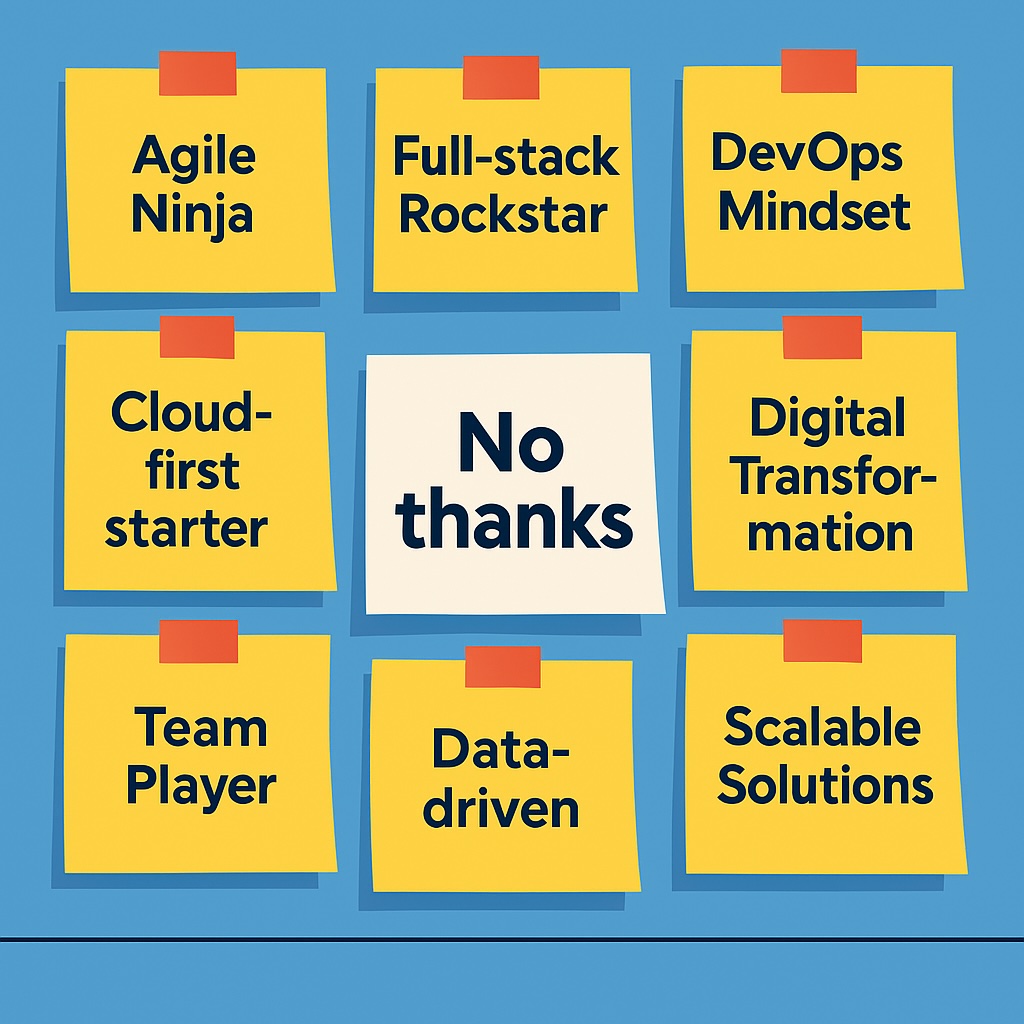Human-Authored Content
This article is written by a human author, not generated by AI. We believe in the value of human creativity, expertise, and perspective in creating authentic and insightful content.
Picture this:
A talented software developer lands on your job post. The project seems interesting, your company has a solid reputation, and at first glance, it looks like a good match. But within seconds, the candidate clicks away. Not because the job wasn’t relevant — but because something in your process turned them off.
It happens more often than you think.
Many HR professionals struggle to attract strong developer profiles — not because they don’t have a compelling product, but because their recruitment process is built for average talent, not the top 10%. Below are 9 classic mistakes that cost you the best candidates — and how to avoid them.
1. Vague job descriptions and unclear requirements
Skilled developers don’t engage with vague titles like “Frontend developer wanted for dynamic team.” They want specifics: What will I be building? What technologies are involved? What does a typical day look like? If you don’t know what you’re hiring for, neither will they — and they’ll move on.
Tip: Focus on impact and responsibilities. Cut the fluff.
2. Long or clunky application processes
If your application requires three forms, a CV upload, and then entering the same data manually, you’re already losing top talent. Add unpaid take-home tasks, and it’s game over.
Tip: Keep the process simple. Only ask for what’s essential. If you’re interested in someone, reach out directly.
3. Overemphasis on buzzwords and certifications
Top candidates learn fast. If your screening depends on someone having a specific AWS certification, you’re missing out on those who’ve built real, scalable systems.
Tip: Focus on problem-solving ability and learning agility — not a static list of tools.
4. Poor communication during the process
Delayed responses, radio silence after interviews, or unclear next steps make candidates pull away.
Tip: Have a communication plan. Follow up quickly — even when there’s no news.
5. Low-quality technical interviews
Asking experienced developers to solve algorithm puzzles from university days says more about your process than their skills.
Tip: Use realistic case studies. Let them think aloud. Or set up a technical conversation with your in-house devs.
6. Lowballing or lack of appreciation
Talented developers know their worth. Trying to “save money” on talent almost always backfires.
Tip: Offer a fair package and be transparent. If you’re a smaller company, compete on flexibility, learning, and ownership — not just salary.
7. No technical peer in the interview
If no one in the conversation can talk tech at a serious level, trust erodes. Developers are also evaluating you.
Tip: Always include a skilled developer in the interview. It shows you’re serious.
8. Ignoring culture fit and soft skills
A candidate may write clean code, but if collaboration breaks down, it won’t work.
Tip: Discuss team dynamics, communication style, and how people work together. Assess chemistry.
9. Unrealistic expectations
“We’re looking for a full-stack developer with 10 years of experience, passionate about AI, ready to start tomorrow — at a standard salary.”
Tip: Prioritize. Be honest about what’s essential and what can be learned on the job.
FAQ – Common Questions from HR About Hiring Developers
How can I assess a technical candidate if I’m not technical myself?
Involve your technical colleagues. Focus on communication skills, collaboration, and motivation from your side.
How do I write a better job post?
Be specific. What will they build, who will they work with, and what does a typical week look like? Cut internal jargon.
Should we pay for take-home assignments?
Yes — if it takes more than 1–2 hours. It shows respect and increases completion rates.
How do we attract passive candidates?
Use your network, personal outreach, and highlight flexibility, learning, and technical challenge. Passive candidates choose you — they’re not actively searching.
Where in the process do we usually lose top candidates?
When the process drags, communication stalls, or the offer doesn’t align with earlier expectations.

